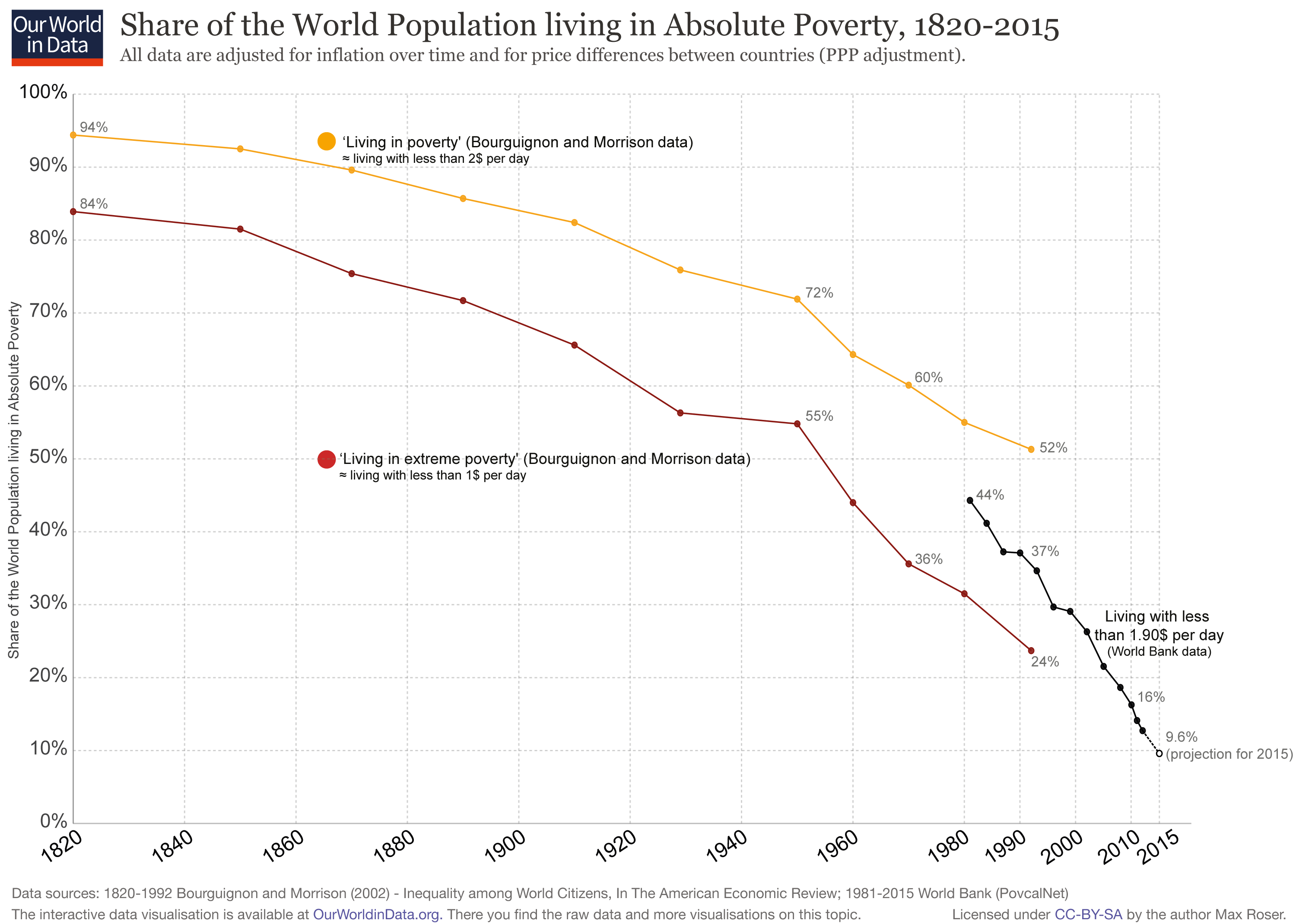|
Killingyouguy! posted:I for one am glad I can date women, worship Satan, and not die in the middle of giving birth for the 11th time. I'd say the modern age is working out pretty well for me That's my point. It's weird by historical standards that you, and me, and indeed most of the people in this thread live materially comfortable and safe lives. I don't believe that history is an arc of progress ever upward, and I don't believe it's headed downward to perdition. But I am worried that there is a mean, and we're far from it, and we may regress to it.
|
|
|
|

|
| # ? Jun 3, 2024 14:07 |
|
Mr. Wiggles posted:As we all know the Christmas Tree was introduced by Queen Victoria, ushering in a new age of civilization. People toss around Martin Luther’s name a lot regarding the origin of Christmas trees, which makes it funny when people blame the crypto-pagan Roman Catholic Church for smuggling in pagan idolatry. But the idea that just about everything in Christianity predates it and the 2000ish year old religion is incapable of coming up with anything on its own stretches my credulity. But who knows, maybe all the world’s religions are just bastardized forms of Hinduism. And corn actually comes from India too.
|
|
|
|
I tend to think most of the time it's a rehash of old Puritan polemics against Catholics or high Church Prots. And the less said about "Easter == Ishtar," the better.
|
|
|
|
Captain von Trapp posted:That's my point. It's weird by historical standards that you, and me, and indeed most of the people in this thread live materially comfortable and safe lives. I don't believe that history is an arc of progress ever upward, and I don't believe it's headed downward to perdition. But I am worried that there is a mean, and we're far from it, and we may regress to it. I think I may have a similar feeling. And for me, it is why the prophetic tradition sticks with me and remains a central part of my experience of religion. From a young age, there seemed to be something very wrong with the way I could see the world treating the marginalized, with the way resources were distributed and used, and with the designs that the powerful made for the future. And just as the Hebrew prophets observed, these catastrophic moral failures will have very grave and real consequences for the viability of a civilization.
|
|
|
Captain von Trapp posted:That's my point. It's weird by historical standards that you, and me, and indeed most of the people in this thread live materially comfortable and safe lives. I don't believe that history is an arc of progress ever upward, and I don't believe it's headed downward to perdition. But I am worried that there is a mean, and we're far from it, and we may regress to it.
|
|
|
|
|
Captain von Trapp posted:That's my point. It's weird by historical standards that you, and me, and indeed most of the people in this thread live materially comfortable and safe lives. I don't believe that history is an arc of progress ever upward, and I don't believe it's headed downward to perdition. But I am worried that there is a mean, and we're far from it, and we may regress to it. Maybe I can't read but I took your post to be saying 'the current world is working for noone and we should go back' and the vibe in here seemed to be following that vein too
|
|
|
|
Caufman posted:I think I may have a similar feeling. And for me, it is why the prophetic tradition sticks with me and remains a central part of my experience of religion. From a young age, there seemed to be something very wrong with the way I could see the world treating the marginalized, with the way resources were distributed and used, and with the designs that the powerful made for the future. And just as the Hebrew prophets observed, these catastrophic moral failures will have very grave and real consequences for the viability of a civilization. I often enjoy the Cold War history thread down in TFR, and occasionally people like to talk about one of the famous books of the cold war era: Alas, Babylon, about (surprise) a community surviving the aftermath of a nuclear war. The title comes from Revelation 18, describing the fall of Babylon as part of the end of the world. The historical city of Babylon was largely no longer a going concern at the time of the writing of Revelation, and Babylon serves as a metaphor for... well, Revelation is notoriously difficult to pin down, but probably some combination of contemporary Rome and centers of worldly power in general. In Alas, Babylon, the protagonist's Pentagon-connected brother uses it as a code word meaning "nuclear war is about to break out, stock up and take cover". It's a striking image, one that maybe stuck with me too well. Yeah, yeah, I know seemingly every generation's Christians are convinced that Revelation must be talking about their time and place specifically. I'm not going that far, certainly not in a literal end of days sense. Nonetheless, it's a resonant text. Just after the fall of Babylon happens, there's a lament by the wealthy of the city. You read the list and think you're getting the first-world-problems list of the powerful, until you get to the last item... if it doesn't sound like a warning to us, I don't know what does. Revelation 18:11-13 posted:And the merchants of the earth weep and mourn for her, since no one buys their cargo anymore, cargo of gold, silver, jewels, pearls, fine linen, purple cloth, silk, scarlet cloth, all kinds of scented wood, all kinds of articles of ivory, all kinds of articles of costly wood, bronze, iron and marble, cinnamon, spice, incense, myrrh, frankincense, wine, oil, fine flour, wheat, cattle and sheep, horses and chariots, and slaves, that is, human souls.
|
|
|
|
Killingyouguy! posted:Maybe I can't read but I took your post to be saying 'the current world is working for noone and we should go back' and the vibe in here seemed to be following that vein too My view (to the extent I have one, which is limited because my ability to predict the future sucks) is more like: 1. Our world (for the average SA denizen) has been working weirdly well for the last seventy years. 2. The reasons for this historical anomaly are probably not sustainable, and the wheels are probably going to come off. Indeed there's an almost eerie consensus among left, right, traditionalists, modernists, centrists, extremists, almost any demographic group, you name it - that something is going horribly wrong. They disagree on what it is and how to fix it, but there's little disagreement that something is badly amiss. 3. When this happens it'll be bad for everyone.
|
|
|
|
The Sunday morning radio show hosts I listen to - they bill themselves "undenominational" first-century New Testament Christians, pretty much eschewing the Catholic doctrine of development, or really an idea that denominational Christianity is a good idea. I'm looking back at my notes from a show in mid-November and seeing Acts 20 mentioned. That was probably one of the hosts saying that that particular chapter implies that most, if not all, denominations are apostate. I'm gonna guess that comes down to this passage here - I seem to remember verse 30 being specifically quoted by Gary.Acts 20:27-30 KJV posted:27 For I have not shunned to declare unto you all the counsel of God. 28 Take heed therefore unto yourselves, and to all the flock, over the which the Holy Ghost hath made you overseers, to feed the church of God, which he hath purchased with his own blood. 29 For I know this, that after my departing shall grievous wolves enter in among you, not sparing the flock. 30 Also of your own selves shall men arise, speaking perverse things, to draw away disciples after them. Not to step on anyone's toes here but I kind of get where he's going with this. It can certainly be read in such a way that anyone attempting to deviate from the teachings of the Bible, to a denomination with added books and documents or that treat the Bible as a piece of a foundation rather than the foundation, goes right to verse 29-30. It can also be read as simply talking about other religious dogma, I suppose. Captain von Trapp posted:Yeah, yeah, I know seemingly every generation's Christians are convinced that Revelation must be talking about their time and place specifically. I'm not going that far, certainly not in a literal end of days sense. Nonetheless, it's a resonant text. Just after the fall of Babylon happens, there's a lament by the wealthy of the city. You read the list and think you're getting the first-world-problems list of the powerful, until you get to the last item... if it doesn't sound like a warning to us, I don't know what does. One of the hosts is big into eschatology and loves questions on Revelation, but they both don't necessarily think that it will be as blatant and overt as John the Revelator saw, or as is portrayed in the Left Behind series. Rather, they suspect that A) it has already happened in some way or B) it will be much slower and nefarious. B doesn't quite track with me because the way I read Revelation, the judgments are meant to scare the living poo poo out of as many people as they can in order to save as many to Christ's salvation as possible. Of course, I also look at LaHayes and Jenkins talking about only the 144,000 Jews being saved and roll my loving eyes. This poo poo is why I'm enjoying the Bible so much, seeing the different ways things can be read, hearing the other ways it can be interpreted.
|
|
|
|
I always love the folks who are like "Only the bible counts! This specific version! Everything else is a later invention!" Like, the Church is older than the Bible homie.
|
|
|
Captain von Trapp posted:My view (to the extent I have one, which is limited because my ability to predict the future sucks) is more like: This does not even mean that it is wrong, either. There have been reliable predictions, often rooted in the best knowledge and observation of wise minds in their time and place, of the collapse of virtue and civilization since... well, since we have had records of those predictions, I believe. And they've only been right, what, four or five times? Mr. Wiggles posted:I always love the folks who are like "Only the bible counts! This specific version! Everything else is a later invention!" Nessus fucked around with this message at 19:17 on Feb 8, 2022 |
|
|
|
|
Then on the other hand you have those people who put up ads on youtube saying THE BIBLE IS THE MARK OF THE BEAST
|
|
|
|
|
|
|
|
|
Nessus posted:I believe you could have made the same post twenty or forty years ago (although there was a vein of deep-rooted optimism about the 'end of history' in whatever form around the time I imagine a lot of us were coming of age - say, 1995 to the actual wheels-off in 2007/2008), just adjusting the numbers. And I believe that you could have made the same post in 1928 in America and been almost immediately validated. What were the four or five times the predictions were right?
|
|
|
|
Re: modern trends, I believe two opposed things. The first is that by almost every measurable indicator, it's a better time per-capita to be alive than almost any time of human history. Violence is declining, life spans are increasing, education and gender equality and acceptance of LGBTQ people - they're all more or less improving more or less everywhere (big asterisks here, it's a sawtooth pattern and it varies a lot by region). There are real fault lines developing, and a lot of unsustainable foundations, but we still have time to fix everything. The other thing, though, is that this is more or less exactly what people thought a hundred years ago. Yeats has a great, terrifying poem about it - I'll post it below. He points out that people thought the world was on the right track more or less right up to WWI. This poem haunts me. NINETEEN HUNDRED AND NINETEEN I. MANY ingenious lovely things are gone That seemed sheer miracle to the multitude, protected from the circle of the moon That pitches common things about. There stood Amid the ornamental bronze and stone An ancient image made of olive wood -- And gone are Phidias' famous ivories And all the golden grasshoppers and bees. We too had many pretty toys when young: A law indifferent to blame or praise, To bribe or threat; habits that made old wrong Melt down, as it were wax in the sun's rays; Public opinion ripening for so long We thought it would outlive all future days. O what fine thought we had because we thought That the worst rogues and rascals had died out. All teeth were drawn, all ancient tricks unlearned, And a great army but a showy thing; What matter that no cannon had been turned Into a ploughshare? Parliament and king Thought that unless a little powder burned The trumpeters might burst with trumpeting And yet it lack all glory; and perchance The guardsmen's drowsy chargers would not prance. Now days are dragon-ridden, the nightmare Rides upon sleep: a drunken soldiery Can leave the mother, murdered at her door, To crawl in her own blood, and go scot-free; The night can sweat with terror as before We pieced our thoughts into philosophy, And planned to bring the world under a rule, Who are but weasels fighting in a hole. He who can read the signs nor sink unmanned Into the half-deceit of some intoxicant From shallow wits; who knows no work can stand, Whether health, wealth or peace of mind were spent On master-work of intellect or hand, No honour leave its mighty monument, Has but one comfort left: all triumph would But break upon his ghostly solitude. But is there any comfort to be found? Man is in love and loves what vanishes, What more is there to say? That country round None dared admit, if Such a thought were his, Incendiary or bigot could be found To burn that stump on the Acropolis, Or break in bits the famous ivories Or traffic in the grasshoppers or bees. II. When Loie Fuller's Chinese dancers enwound A shining web, a floating ribbon of cloth, It seemed that a dragon of air Had fallen among dancers, had whirled them round Or hurried them off on its own furious path; So the platonic Year Whirls out new right and wrong, Whirls in the old instead; All men are dancers and their tread Goes to the barbarous clangour of a gong. III Some moralist or mythological poet Compares the solitary soul to a swan; I am satisfied with that, Satisfied if a troubled mirror show it, Before that brief gleam of its life be gone, An image of its state; The wings half spread for flight, The breast thrust out in pride Whether to play, or to ride Those winds that clamour of approaching night. A man in his own secret meditation Is lost amid the labyrinth that he has made In art or politics; Some Platonist affirms that in the station Where we should cast off body and trade The ancient habit sticks, And that if our works could But vanish with our breath That were a lucky death, For triumph can but mar our solitude. The swan has leaped into the desolate heaven: That image can bring wildness, bring a rage To end all things, to end What my laborious life imagined, even The half-imagined, the half-written page; O but we dreamed to mend Whatever mischief seemed To afflict mankind, but now That winds of winter blow Learn that we were crack-pated when we dreamed. IV. We, who seven years ago Talked of honour and of truth, Shriek with pleasure if we show The weasel's twist, the weasel's tooth. V. Come let us mock at the great That had such burdens on the mind And toiled so hard and late To leave some monument behind, Nor thought of the levelling wind. Come let us mock at the wise; With all those calendars whereon They fixed old aching eyes, They never saw how seasons run, And now but gape at the sun. Come let us mock at the good That fancied goodness might be gay, And sick of solitude Might proclaim a holiday: Wind shrieked -- and where are they? Mock mockers after that That would not lift a hand maybe To help good, wise or great To bar that foul storm out, for we Traffic in mockery. VI. Violence upon the roads: violence of horses; Some few have handsome riders, are garlanded On delicate sensitive ear or tossing mane, But wearied running round and round in their courses All break and vanish, and evil gathers head: Herodias' daughters have returned again, A sudden blast of dusty wind and after Thunder of feet, tumult of images, Their purpose in the labyrinth of the wind; And should some crazy hand dare touch a daughter All turn with amorous cries, or angry cries, According to the wind, for all are blind. But now wind drops, dust settles; thereupon There lurches past, his great eyes without thought Under the shadow of stupid straw-pale locks, That insolent fiend Robert Artisson To whom the love-lorn Lady Kyteler brought Bronzed peacock feathers, red combs of her cocks.
|
|
|
|
People have always thought it, that's a fascinating part of the human condition for me. I often wonder just how much of it comes from real trends and how much of it comes from 'when I was a child it was a lot easier to be happy', a sort of unconscious yearning back towards simplicity. But other folk here are a lot more learned than I am about this stuff. I love Yeats. And Louis Macniece, whom I first learned about because he was quoted in 'Rev', a sitcom about an Anglican vicar that has aged poorly in a couple of respects but *does* represent the only realistic depictions of praying I've ever seen. And depicts a crisis of faith very well too. Fanfare to the Makers: A cloud of witnesses. To whom? To what? To the small fire that never leaves the sky. To the great fire that boils the daily pot. To all the things we are not remembered by, Which we remember and bless. To all the things That will not notice when we die, Yet lend the passing moment words and wings. So fanfare for the Makers: who compose A book of words or deeds who runs may write As many who do run, as a family grows At times like sunflowers turning towards the light. As sometimes in the blackout and the raids One joke composed an island in the night. As sometimes one man’s kindness pervades A room or house or village, as sometimes Merely to tighten screws or sharpen blades Can catch a meaning, as to hear the chimes At midnight means to share them, as one man In old age plants an avenue of limes And before they bloom can smell them, before they span The road can walk beneath the perfected arch, The merest greenprint when the lives began Of those who walk there with him, as in default Of coffee men grind acorns, as in despite Of all assaults conscripts counter assault, As mothers sit up late night after night Moulding a life, as miners day by day Descend blind shafts, as a boy may flaunt his kite In an empty nonchalant sky, as anglers play Their fish, as workers work and can take pride In spending sweat before they draw their pay. As horsemen fashion horses while they ride, As climbers climb a peak because it is there, As life can be confirmed even in suicide: To make is such. Let us make. And set the weather fair.
|
|
|
|
Freudian posted:Then on the other hand you have those people who put up ads on youtube saying THE BIBLE IS THE MARK OF THE BEAST antinomianism is back baby and its madder than ever
|
|
|
|
I just want to share this quote from my favorite quote because it always amuses me and rings so very true. The Gargoyle by Andrew Davidson, a Catholic priest character talking about the female romantic lead:quote:She says the problem with most Christians is that they show up once a week to pray that God's will be done- and when it is, they complain.
|
|
|
|
White Coke posted:What were the four or five times the predictions were right? A not-very-fun exercise is to throw a dart at a world map and, and look up the last time an unimaginable horror killed a shocking number of people in that country. For a depressingly high percentage of locations, that time is a two-digit number of years ago. These will generally not be full-blown civilization-enders, but they're more common than most prosperous people realize. Even the most recent SCP-style XK-Class End-of-the-World Scenario (at least across two full continents) happened a mere 530 years ago, in 1492. America's anomalously-high 157 year interval since the Civil War probably contributes to our idea that our prosperity is an automatic permanent law of nature. Normalcy bias is a hell of a drug. Notahippie posted:Yeats has a great, terrifying poem about it HopperUK posted:I love Yeats. Ok, ok, someone has to quote Yeats' magnum opus in the "we're doomed" genre. quote:Turning and turning in the widening gyre
|
|
|
|
Notahippie As a psychologist, I'd like to hear your take on something. I like Nietzsche as I've said but a figure perhaps less well known to average people but iconic in social sciences is Max Weber. He also articulated the unique challenges we face in the modern West: “The assumption that I am offering you here is based on a fundamental fact,” that “fact” being the presupposition of a radical immanence that knows no transcendent justification, for “as long as life is left to itself and is understood in its own terms, it knows only that the conflict between these gods is never-ending. Or, in nonfigurative language, life is about the incompatibility of ultimate possible attitudes and hence the inability ever to resolve the conflicts between them. Hence the necessity of deciding between them.” Anyway, reading various articles on him and Nietzsche, I came across this book: "Cultural-Existential Psychology: The Role of Culture in Suffering and Threat" The author describes it as building on terror management theory and experimental existential psychology and explains its methodology and reasoning a bunch but for a layman like me that wasn't the most interesting or relevant part. I took a bunch of notes and here is one that help sums up part of what attracted me: quote:For example, cultural orientations shape the exact content of the terror and loss of meaning experienced during episodes of meaninglessness angst. The content of psychotic delusions and hallucinations has been shown to vary across settings in relation to cultural content. Suhail and Cochrane (2002) compared schizophrenic delusional content among Pakistani patients living in Pakistan, Pakistani patients living in Britain, and British White patients. The researchers found that the content of delusions varied by culture, and interestingly the current environment had a greater influence than shared genetic or cultural background, as the British Pakistani group was more similar to the British White than the native Pakistani group. While the former groups expressed more delusions related to the desire for personal control and the intrusion on mental thought of electronic devices (e.g., radio waves), the latter group expressed relatively more delusions involving ghosts or black magic, in line with Pakistani traditional beliefs. The first part is theoretical background, second part is his own empirical research on a group of traditionalist Mennonites in Kansas, and then the final part is discussing what it might all mean. When discussing the modern vs. premodern world, I totally forgot about the stress this book places on how traditional, more hierarchical and collectivist societies deal with suffering compared to us. If something went wrong for them, it's obviously someone's fault. Misfortune is explained via theodicy. Nowadays poo poo goes wrong, you just have to shrug and say "the world sucks like that." Science (as Weber emphatically put it) can teach us only facts, never values. This fact-value distinction is a product of Western modernity.
|
|
|
|
That's my favourite aspect of the book of Job - is that one of its messages is 'sometimes bad things happen to people and they *don't* deserve it so have some compassion'.
|
|
|
White Coke posted:What were the four or five times the predictions were right? I can confidently say that, broadly speaking, things will improve - unless they remain steady. And it's possible they might well get worse. Results may also vary by region and group.
|
|
|
|
|
HopperUK posted:That's my favourite aspect of the book of Job - is that one of its messages is 'sometimes bad things happen to people and they *don't* deserve it so have some compassion'. Yes! I love it!!!! I wrote about it for my conversion essay and I maintain it's my favourite book of the Tanakh for this exact reason.
|
|
|
|
Cyrano4747 posted:Sounds a lot like the symptoms of a relative who died of esophageal cancer. Swallowing was painful and the only nutrition he could get down was mashed up food and, at the end, broth. Yeah, that sounds like my Dad in his last weeks. They ended up running a feeding tube through his nose because anything, even water, by mouth was too painful.
|
|
|
|
Nessus posted:At a certain point it seems to veer into bibliolatry: is the Bible more important than, like, God? If God was silent, would the Bible be enough? And if God were to speak again - would you trust that voice, or the Book? Oh this is interesting because as far as I understand in Judaism the answer is absolutely, explicitly, the book. There's literally a story about exactly that thing. I wouldn't characterise it as idolatry though, more like God gave us a book which is a single source of truth for how to be and that's that.
|
|
|
|
Just wanted to pop my head in as an atheist and say that you all have some interesting conversations in here, and I appreciate it. It's nice to see a lot of the issues we have through that lens, even if my belief doesn't align with the various ones in here. It gives me hope.
|
|
|
|
Mr. Wiggles posted:I always love the folks who are like "Only the bible counts! This specific version! Everything else is a later invention!" The apologists, the early Logos Christianity ones: Anywhere the Truth is even in atheists and competing philosophies we must accept it and it is ours or our Truth isn’t the Truth. D34THROW: how bout only the Bible, those guys were only about the Bible right. Only the Bible is true.
|
|
|
|
Jesus said 'What is truth?' and everyone went crazy trying to logic up an answer instead of understanding that he was being all philosophical
|
|
|
|
Captain von Trapp posted:That's my point. It's weird by historical standards that you, and me, and indeed most of the people in this thread live materially comfortable and safe lives. I don't believe that history is an arc of progress ever upward, and I don't believe it's headed downward to perdition. But I am worried that there is a mean, and we're far from it, and we may regress to it. It... really isn't, though? We live relatively comfortable lives, with the produce of many cultures available to us, due to military and economic hegemony. Which is a recurring theme in similar situations throughout recorded history, from Ancient Egypt to Greece, to Rome and on through colonialism to today. There's no 'mean' to revert to, and were an absolutely ungodly amount of resources not being siphoned off to enrich a small number of people more than any human in history, the standard of living could be even higher.
|
|
|
|
Organza Quiz posted:Oh this is interesting because as far as I understand in Judaism the answer is absolutely, explicitly, the book. There's literally a story about exactly that thing. I wouldn't characterise it as idolatry though, more like God gave us a book which is a single source of truth for how to be and that's that. I don't know if that is true for every form of Jewish practice. I doubt it would be true for the Jews at the synagogue I work for. The scriptures are to be studied and interpreted, as it has been in the midrashic tradition, and that study and interpretation is not less than the text itself. As the saying goes, "This, too, is Torah." In fact, I think the rabbi of the synagogue would say that a dogmatic, fundamentalist attitude towards scripture among Jews would be an insidiuous form of cultural invasion by protestantism. J.A.B.C. posted:Just wanted to pop my head in as an atheist and say that you all have some interesting conversations in here, and I appreciate it. It's nice to see a lot of the issues we have through that lens, even if my belief doesn't align with the various ones in here. It's wonderful that we have the capacity to give each other hope, theists and non-theists alike. On the subject of hope, there is a distinction between people that is more salient than their position on theism. That is to say, there are theists that I regretably wouldn't say make me hopeful. Captain von Trapp posted:I often enjoy the Cold War history thread down in TFR, and occasionally people like to talk about one of the famous books of the cold war era: Alas, Babylon, about (surprise) a community surviving the aftermath of a nuclear war. The title comes from Revelation 18, describing the fall of Babylon as part of the end of the world. The historical city of Babylon was largely no longer a going concern at the time of the writing of Revelation, and Babylon serves as a metaphor for... well, Revelation is notoriously difficult to pin down, but probably some combination of contemporary Rome and centers of worldly power in general. In Alas, Babylon, the protagonist's Pentagon-connected brother uses it as a code word meaning "nuclear war is about to break out, stock up and take cover". It's a striking image, one that maybe stuck with me too well. It's been a long time since I read Alas, Babylon, but I remember enjoying it. There's also A Canticle For Leibowitz in the canon of post-apocalyptic fiction with religious themes.
|
|
|
|
J.A.B.C. posted:Just wanted to pop my head in as an atheist and say that you all have some interesting conversations in here, and I appreciate it. It's nice to see a lot of the issues we have through that lens, even if my belief doesn't align with the various ones in here. I completely agree. This is one of the few places I feel like I can kind of unburden myself intellectually. You can't help but think it is precisely because the people in here take their faiths so seriously that they are open to discourse and don't just respond with reflexive animosity and hostility like everywhere else nowadays.
|
|
|
|
Liquid Communism posted:It... really isn't, though? While of course things could be much better, and many problems remain in the world, I think you are significantly underestimating how widely the benefits of the modern world have been shared. For example, infant mortality has dropped all across the world dramatically in the last 100 years. According to the World Bank, the highest infant mortality rate in the world is 8.1%, in the Central African Republic, a country with an active civil war. In 1800, the infant mortality rate in England was 33%. In 1900, the infant mortality rate in England was 23%, in France it was 20%, and in the US it was 15.7%. Today, even war torn countries in Central Africa have that mark easily beaten. The overall infant mortality rate has fallen by something like 90% since 1900.  Rates of extreme poverty have also plummeted  The degree to which societal prosperity is now being shared is unprecedented. It is true that a small number of people are now richer than anyone else in human history, but it is also true that improvements in global living standards are also larger and broader than they ever have been far. People's lives have become far more comfortable in many countries that do not have possess the military and economic hegemony you credit these changes to. Improvements in health, poverty, and other areas have been felt throughout the world. Just in the last 20 years, life expectancy in Africa has risen by 12 years. In Southeast Asia, its up 8 years. There are dozens more statistics like this. The modern world has worked really well at improving living conditions almost everywhere. There is still an enormous amount of work to do to, but its simply untrue to claim that all the benefits are all concentrated in the hands of small number of people. I would agree with you that there is no "mean" to revert to, but that is because the mean has been so completely reset. Short of a nuclear war, we are never going to go back to a world where infant mortality is 33%, or where 95% of the population lives in extreme poverty. The baseline is much higher now than it ever has been before.
|
|
|
|
HopperUK posted:Jesus said 'What is truth?' and everyone went crazy trying to logic up an answer instead of understanding that he was being all philosophical Um... that was Pontius Pilate.
|
|
|
|
My understanding is that nuclear war is just one source of global catastrophic risk; there's more risk than that, the big attention-grabbing one being climate change in its ability to seriously jeapardize global civilization. The technological advancement is astounding to me, but why the prophets and gadflys continue to resonate with me is the ongoing elite malfeasance that seem to make all these gains dangerously close to being lost. Although I do believe the great powers want to avoid going to war with each other because of its destructiveness in the shadow of nuclear weapons, the reality is that war between nuclear powers is possible if the leadership of these states make a mistake while they compete in their hegemonic games, games that I don't believe benefit the everyday people across the world. And then our economic elites seem more interested in amassing ever-greater influence and leaving the planet to exploit other planets rather than in social justice and welfare. If you tell me we are living in an amazing era, one unprecedented in human history even for people at the bottom as well as at the top, I can look around and believe that. If you tell me we are also living in a time of crisis, where we still live precariously under the regime of guided missiles and misguided men, I can well believe that, too. It will not feel like a safe world to me so long as justice and responsibility trail behind selfishness among the powerful.
|
|
|
|
The Blessed Leibowitz has entered the chat.
|
|
|
|
Caufman posted:My understanding is that nuclear war is just one source of global catastrophic risk; there's more risk than that, the big attention-grabbing one being climate change in its ability to seriously jeapardize global civilization. The positive trends of decreasing poverty, improving life expectancy, lower infant mortality and so forth are taking place at the same time as the decline in biodiversity, increasing ocean acidification, climate change and ecological overshoot in general. Overshoot is among other things the overconsumption of finite natural resources by all human activity. It is fundamentally unsustainable. Economists and politicians look at economic indicators like GDP growth, which is unrealistically decoupled from the ecological reality of limited natural resources. They advocate continuous growth, as if it could continue forever in a vacuum, without consequences. We live on one single planet with millions of years of accumulated fossil fuels burned in a century. Cheap energy has allowed the prosperity to grow, but how can the economy continue to grow if the biosphere we depend on collapses from underneath? Climate change is not even the biggest environmental problem we face, just one facet of a bigger issue. The accelerating extinction of species, loss of habitats, overfishing and collapse of the ecosystems is barely even on the agenda when decisionmakers talk about issues. The ecologist William Rees has spoken about overshoot for decades, you can find him on youtube if you want to see what he has said about it. In my view, we are running like Wiley Coyote over a sheer cliff, not looking down. While the coyote time continues, we run and run in place over the abyss. Then the gravity kicks in. Pray as much as you feel you should, if prayer is part of your beliefs. It might give you personal comfort. Mother nature follows the laws of physics, which is what I would equate with God. I have no solutions to the problem. Prayer is as good as anything I can think of. Maybe participate in some grassroots efforts to live more sustainably. It's not the end of the world, but I think there will be a process of civilizational decline coming this century. I try not to talk about it, but I can't help but think. Edit: I am sorry if this is a derail from religious discussion. To bring it more in line with the thread, there are videos of Michael Dowd on youtube, where he discusses post-doom issues and beliefs from a religious perspective. SlightlyMad fucked around with this message at 09:58 on Feb 9, 2022 |
|
|
|
Not at all a derail from the discussion of religion in my opinion; this is a central part of humanity's concern right now, or at least I think it should be. My understanding is that when the Hebrew prophets were sharing their warnings, it was during a time of peace and prosperity for their kingdom, and their detractors likely felt that disaster was not probable and discouraged that kind of talk. I do believe that spiritual practice has an indespensible place in facing the realities of catastrophes from the very personal and local level to the global and even the universal levels. I'm curious what people think of this dharma talk from a pair of Plum Village monastics at COP26: https://www.youtube.com/watch?v=9PouNSlYV-E. I wonder how effective grassroot means are at reducing the global catastrophic risks. From the discourse I pick up, it seems it's kind of mixed. The biggest contributors to the risk are from well-organized, wide-reaching systems, so it seems the effort to reduce the risk must also be organized and wide-reaching. But that's not to dismiss individual practice and action. As the Plum Village monastics teach, part of the practice is to be stronger both individually and collectively. The comfort that arises from spiritual practice, especially when we are overwhelmed by unpleasant feelings, is meant to help us do the actions that will reduce harm and promote well-being in and all around us. Thay Nhat Hanh and his students also do talk about meditating on the possibility that the human race ceases. And we can imagine that happening for reasons that are both human-made and non-human-made in origin. This practice is not done to be morbid or as an excuse to disengage, but it's meant to remove the paralysing despair that may come from having this thought arise. At the retreat, a monastic brought this up in a dharma talk, and laster at dharma sharing, I had a conversation with some other retreatants about the notion of dharma semiotics, like nuclear semiotics but instead of warning future humans of nuclear waste sites, this would be how to transmit the dharma to future non-humans should we not be around.
|
|
|
|
White Coke posted:Don’t Christmas trees date to around the start of the Protestant Reformation? Every year people argue about the PAGAN ORIGINS of this or that holiday and from what I’ve read in a lot of cases what information we have is inconclusive at best. And isn’t the idea that nature=pagan so things like trees and rabbits must have a pre-Christian origin something that stems from the 19th century Romantic response to the alienation of the Industrial Revolution? If you want to get into the swampy weeds of things, the Yule feast has been adressed several times in my nordic heathenry thread. tl;dr: Yes, there was definitely a great feast with clear religious elements and a sacrifice to gods called Jól (it was in february though), and while the christmas tree is a romantic invention, German guildsmen around 1300 (so not too long after christianization) carried a "yule log" into their halls to burn during the festivities, which may or may not have pagan origins.
|
|
|
|
My grandmother died yesterday. She had an amazing life, lived to be 98, and up until the last few months was vibrant and energetic. I can't work up the sorrow to be sad, though. I'm profoundly sorry I won't get to talk to her anymore, but I'm very proud of the life she lived and excited that she'll finally see heaven after all this time on earth. I'm surprised that I'm having these kind of emotions over the death of someone close to me. Please pray for my mother, if you're so inclined, though, as she's taking this somewhat worse.
|
|
|
|

|
| # ? Jun 3, 2024 14:07 |
|
What do you do when you come across chapters of the Bible that are profoundly offensive to you? Let's face it, there are parts of the Old Testament that are very nasty.
|
|
|







































